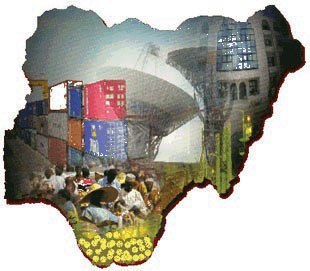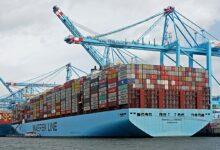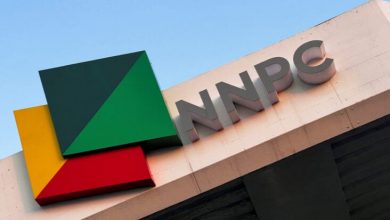
Strategies for Economic Diversification in Nigeria – In this post, we discuss the strategies to diversify Nigeria economy? Here you will find 10 notable strategies for economic diversification in Nigeria.
Nigeria is a very popular country in the world rich in human, natural and mineral resources. Unfortunately, the country has heavily depended on crude oil as a major source of revenue since its discovery in 1956.
👉 Relocate to Canada Today!
Live, Study and Work in Canada. No Payment is Required! Hurry Now click here to Apply >> Immigrate to CanadaIt is a known fact in the world that for any nation to grow and develop steadily, its economy needs to be diversified.
Economic diversification in Nigeria is a strategy applied by focusing on multiple economic sources instead of one income source, in this case, Oil and Gas. The goal of this diversification is to encourage the growth and development of the country’s economy.
Although the number of commodities exported from a country doesn’t ultimately determine how fast its economy can grow, the proper management of the current export base and expansion of local efforts in terms of further processing and subsequent diversity is a solution to driving and developing the wealth of countries.
10 Ways to Diversify Nigeria Economy
The primary goal of every country is to maintain a strong developing sustainable economy.
However, there has been very slow growth in the economic development of the African continent and Nigeria is not excluded.
Here, we will be stating the challenges, as well as the strategies that should be carried out in diversifying Nigeria economy.
1. Create a feasible plan
Developing a workable strategy is the first step which should be taken towards diversifying Nigeria economy.
Interestingly, the matter of economic diversification is not a new policy as it has been a much-mentioned issue by successive governments in the country. This developed plan should be a guide for the government as they seek out solutions to the present economic crises.
👉 Relocate to Canada Today!
Live, Study and Work in Canada. No Payment is Required! Hurry Now click here to Apply >> Immigrate to CanadaThe plan of the Federal Government should include the following among others:
- Focus on key sectors
The present situation of the country call for urgent attention and all sectors may not be attended to due to lack of adequate funds. Therefore, the Federal government has to determine the key sectors to focus its efforts.
Even though the government must expand every economic sector, they should maximize strategic areas for the sake of diversification.
These are sectors that will yield not just the highest but also the quickest returns. They include agriculture, technology, manufacturing, banking and finance, industry, health, solid minerals, infrastructure, among others.
- Make projections
There is a need for the government to make projections to know what to expect from every action that will be taken on a short, medium and long term basis.
- Give answers to relevant questions
What challenges are the various sectors facing? How can the government intervene? Apart from the government, who else can take part? How can the government get them involved? Are there funds available? How much can be sourced and from where can it be sourced?
Read more on this: 10 Ways To Improve Nigeria’s Economy And Stay Out Of Recession
2. Bring others on board
To effectively achieve economic diversification in Nigeria, the Federal Government needs to do the following:
- Develop some sectors by itself.
- Provide the enabling environment so that others can participate.
- Simplify the participation process of other parties in relevant sectors.
-
The Private Sector
The private sector has to be actively involved in the economic diversification in Nigeria.
The Nigerian government is still struggling with attracting and keeping investors. The government focuses so much on the oil sector that it has made little impact on other economic sectors and infrastructures (such as water, electric power, railways, roads, communications, and ports), especially in rural regions.
These are things that can greatly contribute to growing the economy of the country, as well as wooing investors. Investors will also likely consider conditions like security, current forex system, ease of business operation, return on investment, access to justice, etc.
Without expecting every necessary condition to be available, the Federal Government should draw private investment (local and foreign) in the short-medium term using the right strategy.
Read more on this: The Role of the Private Sector in Nigeria’s Economic Development
- The States and Local Governments
As long as the economic diversification process is concerned, States and Local government have roles to play.
The Federal government has to liaise with the state government. The states should work with the local governments to help implement the programs of the Federal government.
Clearly, money from the account of the federation is no longer sufficient for many states in the country, therefore, states need to start thinking of means to generate funds, in addition to federal allocation and taxation. This will enable states to independently sustain themselves in the long run.
The states, as well as local governments, should try to create their own distinct plans to address the present economic crises
Read more on this: 37 Functions Local Governments in Nigeria
- Foreign Governments
The Federal government should devise means to partner with other nations and international bodies. This could be for investment co-operation, technology transfer, exports promotion, among other kinds of economic co-operation.
3. Improve some Sectors of the Economy with the Right Strategy
This should be the actual aim of the economic diversification as it involves the implementation of the plan of the Federal Government.
The right strategy should be used to greatly increase the revenue generated from selected economy sectors, at the same time increase the revenue from every area generally.
The government needs to tackle problems of infrastructure, entrepreneurship, health, small and medium enterprises, agriculture, and import substitution.
4. Reduce Corruption
Corruption is one of the major problems affecting the economy of global nations, which includes Nigeria. It has caused the needed resources that could have been invested in growing various industries to be diverted to the pockets of a selected few.
Although, completely eradicating corruption may seem impossible, reducing it to a great extent is important to provide effective results from the economic diversification efforts in Nigeria.
Read more on this: 10 Ways to Prevent Corruption in Nigeria
5. Initiate Fewer Regulations
In many countries, the process of setting up businesses (e.g. obtaining licenses) can be very difficult due to complex regulations, the same issues affect Nigeria.
By making the process simpler and cutting down the application steps for obtaining various business licenses in the country, there can be better growth and development in more sectors of the economy.
Read more on this: 5 Effects Of Government Policies On Business In Nigeria
6. Introduce Solid Education programs
The Government should also focus on creating effective education programs as this will help to empower people with the necessary vocational skills.
It will also empower them with the ability to implement local production on a large scale and this will promote a stronger environment for business.
7. Low tax rates for entrepreneurs
New entrepreneurs that meet a specific condition should be given low tax rates to facilitate active growth in various economic sectors.
Moreover, the low tax rate is one of the factors that can cause investors to invest in the nation.
8. Strengthen the tax systems
Ideally, companies with higher GDP are expected to pay higher tax rates to the Government. The higher revenue generated from this high growth is supposed to be used to develop certain relevant projects.
According to analysis, the biggest contributors to the nation’s GDP and many fast-growing sectors presently makes the least contribution to government revenue regarding taxes.
The present economic activity (formal and informal) should be appropriately taxed to help provide critical public services and the opportunity to discover resources that will boost the revenue of the government.
Read more on this: How to Improve Tax Collection in Nigeria
9. Address the issue of income inequality
Income inequality is another factor that affects economic diversification in Nigeria. It causes high levels of poverty, unemployment, lack of quality education and medical issues.
Income inequality can lead to an increased number of citizens that lack the required work skills, thus reducing productivity in the economy. The reduction of social mobility can also be associated with income inequality.
The government should look into making education accessible to both the low and middle-class citizens.
Analysis has shown that increasing the minimum wage will help reduce poverty and hugely contribute to the revenue of the nation.
Policies that can encourage the rate of higher savings and reduce assets-building costs for the middle and working-class family should also be created.
Read more on this: 4 Ways to Eradicate Poverty in Nigeria
10. Supporting the industrial sector
The fast growth of the industrial sector/economy of a country depends on internal and global politics, economic policy, as well as natural resources.
Ensuring the environment is secured enough for business can attract local and foreign investors- this is one of the ways of achieving great industrial growth.
For instance, countries such as Monaco and Tanzania provide a peaceful environment which has attracted numerous investors, thus increasing their industrial growth rates.
Supporting the industrial sector by providing basic and flexible administrative infrastructures, as well as political stability and security will rapidly increase industrial growth and Nigeria economy generally.
Read more on this: 10 Problems of Nigeria Industrial Sector and Possible Solutions
Conclusion
Nigeria is beyond doubts facing challenges in her economy. This is a wake-up call for the government to tackle these problems, revisit its strategy and begin an effective implementation of its plan. The Federal government can work with the necessary parties to diversify Nigeria economy with the right strategy.




